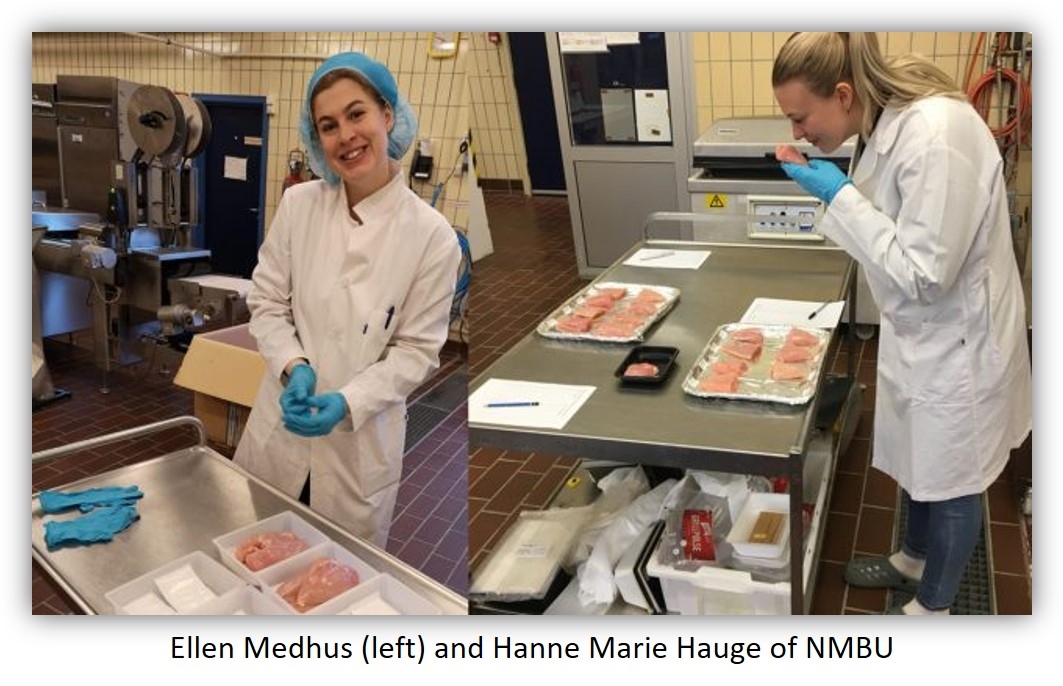News Items - International Association of Packaging Research Institutes
| Nofima analyses fresh chicken spoilage Huge efforts are currently being made to find viable monomaterial, recyclable plastics packs to replace less easily-recycled combinations of polymers but, as Nofima, Norway, is demonstrating, measuring the shelf-life of perishable fresh products in these materials is of vital importance Nofima has been working with Norwegian University of Life Sciences (NMBU) Masters’ students Ellen Medhus and Hanne Marie Hauge to carry out these tests, comparing HDPE trays with APET/PE structures. Using plastics of different thicknesses, fresh chicken fillets were stored at 4degC for 24 days. As well as spoilage and bacteria levels, drip loss from the chicken was monitored. Analyses took place after 8 days, and then at 14, 17, 20 and finally 24 days. Fellow IAPRI members NORSUS and Lund University have also been involved. NORSUS scientist Simon Saxegård contributed to these shelf-life trials by calculating the CO2 emissions attributable to each pack type. Special attention was paid by Medhus and Hauge to typical spoilage bacteria such as Brochothrix thermosphacta and those in the Enterobacteriaceae family, which includes E. coli.  Senior scientist at Nofima Marit Kvalvåg Pettersen said: “We got promising results. There are no significant differences between the different packaging solutions, and it seems that fresh chicken fillets are protected as well in recyclable and more environmentally-friendly packaging. In the long term, this can result in substantial environmental savings.” Senior scientist at Nofima Marit Kvalvåg Pettersen said: “We got promising results. There are no significant differences between the different packaging solutions, and it seems that fresh chicken fillets are protected as well in recyclable and more environmentally-friendly packaging. In the long term, this can result in substantial environmental savings.”No differences in drip loss were detected. Regarding carbon footprint, Saxegård said: “Greenhouse gas emissions produced by incineration are significantly higher compared to recycling and, not surprisingly, the thinner the plastic material, the lower the total emissions. The environmental impact produced by today’s plastic packaging is around 35% higher compared to packaging that consists of fairly thin, recyclable plastic.” The trials were conducted as part of the ReducePack project, funded by the Research Council of Norway and participating businesses. Published: 06/29/21 |